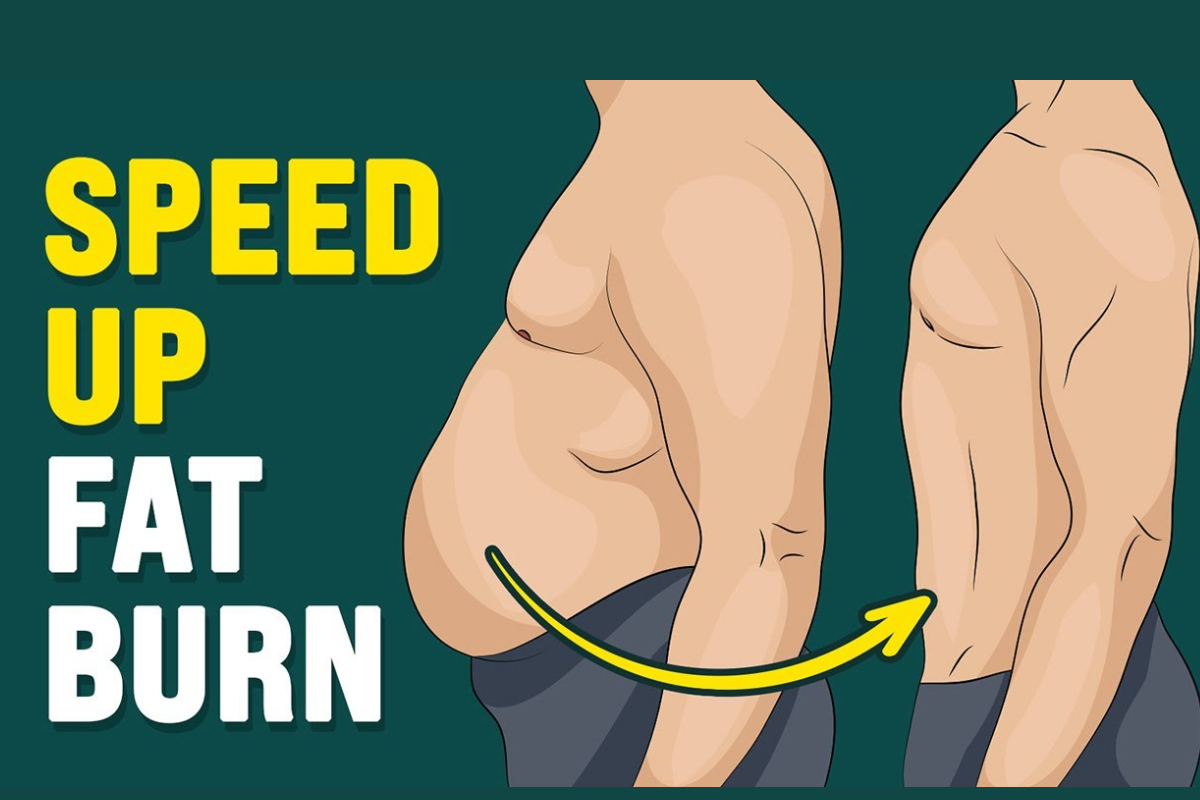Fastest Way to Lose Weight: Athletes’ Winning Strategies
 In the pursuit of the fastest way to lose weight, athletes have become a source of inspiration and fascination. Their dedication to peak performance requires not only skill and endurance but also maintaining an optimal weight. This article explores the strategies employed by athletes to achieve rapid weight loss while excelling in their respective sports.
In the pursuit of the fastest way to lose weight, athletes have become a source of inspiration and fascination. Their dedication to peak performance requires not only skill and endurance but also maintaining an optimal weight. This article explores the strategies employed by athletes to achieve rapid weight loss while excelling in their respective sports.
Understanding the Importance of Weight Management for Athletes
Weight management is a paramount concern for athletes across various sports disciplines. Maintaining an optimal weight is not just about appearance; it plays a crucial role in their performance, agility, and overall success.
The Performance Connection
For athletes, every ounce matters. Carrying excess weight can hamper their speed, agility, and endurance, which are often the deciding factors in competitive sports. Losing weight to reach the ideal body composition can significantly enhance their competitive edge.
Injury Prevention
Athletes are also more susceptible to injuries when they carry excess weight. The added strain on joints and muscles increases the risk of sprains, strains, and other injuries. By shedding excess pounds, athletes can reduce their vulnerability to such setbacks.
Sport-Specific Requirements
Different sports have varying weight requirements and ideal body types. Athletes must adhere to these standards to excel in their chosen discipline. For example, a boxer competing in a specific weight class must maintain the designated weight to be eligible for bouts.
Enhanced Stamina
Optimal weight management allows athletes to maximize their stamina and endurance. When every breath and every step count, maintaining a healthy weight can make a significant difference in their ability to outlast their opponents.
Athletes’ Unique Weight Loss Challenges
While athletes strive for peak physical performance, they encounter a set of unique challenges when attempting to lose weight rapidly. These challenges stem from the specific demands of their sports, training regimens, and competition schedules. Understanding these obstacles is crucial in appreciating the complexity of athletes’ weight management journeys.
Rigorous Training Schedules
Athletes adhere to demanding training routines that leave little room for excessive calorie consumption. Balancing intense workouts with weight loss goals can be challenging, as their energy expenditure often outpaces their caloric intake.
Performance Impact
Losing weight too quickly can negatively impact an athlete’s performance. A sudden drop in weight can lead to decreased strength, diminished endurance, and a loss of power. Striking the right balance between weight loss and maintaining optimal performance is a constant struggle.
Sport-Specific Requirements
Different sports have distinct weight and body composition requirements. Athletes must navigate these requirements to remain competitive. For example, wrestlers must make weight for their weight class before each competition, while bodybuilders aim for specific body fat percentages.
Dietary Restrictions
Many athletes follow strict dietary plans to fuel their bodies for training and competition. Weight loss often requires adjustments to these carefully curated diets, which can be mentally and physically taxing.
Psychological Pressure
The pressure to meet weight-related goals can take a toll on an athlete’s mental health. The fear of not making weight or failing to perform at their best due to rapid weight loss can lead to stress and anxiety.
Injury Risk
Rapid weight loss increases the risk of injuries for athletes. Dehydration and nutrient deficiencies can make them more susceptible to muscle strains, ligament tears, and stress fractures.
Strategies Used by Athletes for Fast Weight Loss
Athletes are renowned for their dedication to achieving peak physical performance, and when it comes to losing weight rapidly, they employ a variety of effective strategies. These athletes have honed their approaches to shed pounds quickly while preserving their strength and stamina. In this section, we will delve into some of the key strategies that athletes use to attain their weight loss goals.
Precision Nutrition
Athletes are meticulous about their nutritional intake. They often work with registered dietitians who develop tailored meal plans that ensure they meet their caloric needs while creating a calorie deficit for weight loss. These plans focus on nutrient-dense foods that provide essential vitamins and minerals.
High-Intensity Interval Training (HIIT)
HIIT workouts are a favorite among athletes for their efficiency in burning calories and fat. These short, intense workouts alternate between bursts of all-out effort and brief rest periods. HIIT not only accelerates weight loss but also enhances cardiovascular fitness and metabolic rate.
Periodization Training
Athletes use periodization training, a structured approach to fitness, to maximize results. This technique involves dividing training cycles into phases, each with specific goals. During weight loss phases, they may focus on higher repetitions and lower weights to increase calorie burn.
Cross-Training
Variety is key to an athlete’s training regimen. Cross-training involves engaging in different forms of exercise to prevent overuse injuries and stimulate weight loss. Athletes may incorporate activities like swimming, cycling, or yoga to complement their primary sport.
Smart Supplementation
While athletes prioritize whole foods, they also use supplements strategically. Protein supplements aid in muscle recovery and repair, while thermogenic supplements can boost metabolism. Athletes consult professionals to choose supplements that align with their goals and are safe for their sport.
Hydration Management
Proper hydration is essential for athletes aiming to lose weight rapidly. Dehydration can lead to performance issues and health risks. Athletes work closely with hydration experts to balance fluid intake and sweat loss during training.
Sleep Optimization
Quality sleep is vital for recovery and weight loss. Athletes prioritize sleep hygiene, aiming for a consistent sleep schedule and adequate rest. Poor sleep can hinder metabolic processes and make weight loss more challenging.
Mental Conditioning
Athletes understand the power of mental conditioning. Techniques like visualization, positive self-talk, and stress management help them stay focused on their weight loss goals and reduce performance-related anxiety.
Monitoring and Adjustments
Athletes track their progress meticulously. They use data from training sessions, body composition assessments, and performance metrics to make informed adjustments to their weight loss strategies. This data-driven approach ensures they stay on the fastest path to their target weight.
 Success Stories: Real Athletes, Real Results
Success Stories: Real Athletes, Real Results
In this section, we will showcase inspiring success stories of athletes who have successfully achieved rapid weight loss while maintaining their peak performance. These athletes are a testament to the effectiveness of the strategies discussed earlier. Their stories serve as motivation for others seeking the fastest way to lose weight.
Success Story 1: The Marathon Runner
Name: Sarah Rodriguez Sport: Marathon Running
Sarah Rodriguez, an accomplished marathon runner, faced a significant challenge when she needed to drop excess weight without compromising her endurance. She worked closely with a sports dietitian who crafted a personalized nutrition plan. Sarah incorporated high-intensity interval training (HIIT) into her training regimen and focused on nutrient-dense foods.
Result: Sarah achieved her target weight in just three months, all while improving her marathon performance. She now competes at her best weight, setting personal records.
Success Story 2: The MMA Fighter
Name: James “The Beast” Martinez Sport: Mixed Martial Arts (MMA)
James Martinez, a professional MMA fighter, had to compete in a lower weight class to gain a competitive edge. His training involved a combination of HIIT, strength and conditioning, and precision nutrition. James emphasized hydration management to ensure he remained energized for rigorous training sessions.
Result: James successfully dropped two weight classes in six months and went on to win several high-profile MMA fights in his new division.
Success Story 3: The Triathlete
Name: Emma Turner Sport: Triathlon
Emma Turner, a dedicated triathlete, needed to optimize her body composition to excel in all three disciplines: swimming, cycling, and running. Her training included cross-training with an emphasis on endurance. She diligently followed her periodization training plan.
Result: Emma achieved her ideal weight while becoming a more well-rounded triathlete. She consistently places among the top competitors in her age group.
Success Story 4: The Powerlifter
Name: David Anderson Sport: Powerlifting
David Anderson, a powerlifting enthusiast, decided to compete in a lower weight class to challenge himself. His training involved high-intensity strength workouts and strict adherence to his nutrition plan. David also prioritized sleep and mental conditioning to maintain focus.
Result: David not only dropped a weight class but also set new personal records in powerlifting competitions, demonstrating the effectiveness of his weight loss strategies.
FAQs: Common Questions About the Fastest Way to Lose Weight
In this section, we will address some common questions and concerns that athletes and individuals seeking the fastest way to lose weight may have.
1. Is Rapid Weight Loss Safe for Athletes?
Rapid weight loss can be safe if done under professional guidance and with a focus on health. Athletes should avoid extreme methods and prioritize sustainable strategies.
2. What Are Some Healthy Ways to Achieve Rapid Weight Loss?
Healthy methods include working with sports dietitians, trainers, and healthcare providers to create personalized plans. These may involve adjusting diet, exercise, and monitoring overall health.
3. Can Rapid Weight Loss Affect Athletic Performance?
It can either enhance or hinder performance, depending on the approach. Healthy weight loss that maintains energy levels and muscle mass can improve performance, while extreme methods can lead to fatigue and decreased performance.
4. How Do Athletes Monitor Their Progress?
Athletes should regularly measure body composition, energy levels, and performance metrics. Professional guidance can help interpret these measures and make necessary adjustments.
5. Are Supplements Safe for Rapid Weight Loss?
Supplements should only be used under professional supervision. They should complement a balanced diet rather than replace it.
6. What Is the Role of Mental Health in Weight Loss?
Mental health plays a significant role. Athletes should address stress, anxiety, and pressure through mental conditioning, mindfulness practices, and seeking support when needed.
